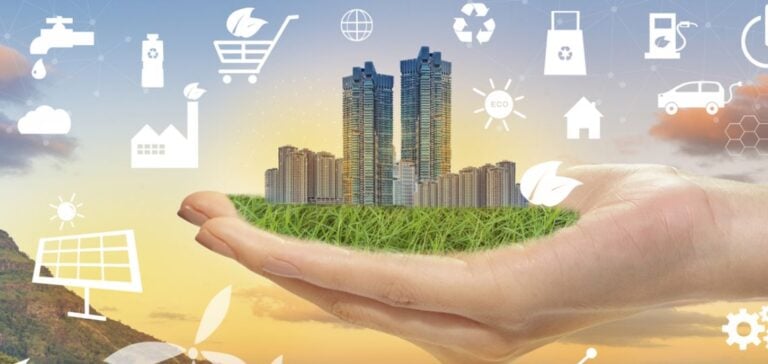A just energy transition can be defined as an equitable transition that benefits the entire population. This concept is designed to ensure that no community is left behind. In fact, this “justice” plays a central role in getting people on board with the energy transition. Yet today, it seems difficult to implement, as the obstacles remain so high.
The concept of “justice” in the energy transition is receiving increasing attention from governments. In its Green New Deal, Europe made this issue a central element of its strategy. After all, energy justice refers to notions of equity, solidarity and accessibility of the energy system.
Fairness as a condition for a just energy transition
Equity in the energy sector
Equity is defined as the fair distribution of the benefits and costs of the energy transition. It’s not a question of absolute equality, but of everyone contributing according to their means. The UN’s “principle of common but differentiated responsibility” is fully in line with this definition.
Equity is achieved when developed countries contribute more to climate efforts than poor countries. In fact, it was during the climate negotiations that this concept took root and began to make its way into the discourse. Emerging countries in particular have made extensive use of this principle to reduce their climate efforts.
Fairness undermined in recent years
Often celebrated since COP 21, fairness is now being undermined when it comes to energy. Indeed, there is a significant gap between countries when it comes to climate efforts. Only 20 of the 196 signatories to the Paris Agreement have announced carbon-neutral targets.
This divergence is proving problematic in a context of heightened international economic competition. For example, differences in fossil fuel subsidies completely disadvantage certain countries, creating a sense of injustice among populations. In fact, the development of a fair energy transition requires genuine equity in climate efforts worldwide.
The importance of solidarity
Winners and losers in the energy transition
In addition to fairness, a just energy transition will require significant support for the industries losing out in the energy transition. We’re obviously thinking of oil, where demand is expected to peak as early as 2030. For many energy-producing countries, the de facto energy transition represents a considerable social risk. The challenge will be for them to diversify their economies by taking advantage of new energy opportunities such ashydrogen.
Because of its impact on pollution, coal will be the other big loser in the energy transition. According to the International Energy Agency, production is likely to stagnate at best between now and 2040, then decline sharply after that date. If the Paris Agreement is respected, coal should account for only 6% of the electricity mix.
Solidarity is needed with the losers in the energy transition
This gradual decline in fossil fuels will have a significant impact on employment in a number of countries. Entire regions could be deprived of economic activity for years to come. We can therefore understand their reluctance to commit to the energy transition. In order to overcome this obstacle, it will be necessary to implement policies to assist the conversion of affected regions.
Through its “just transition mechanism”, the European Union is committed to promoting the retraining of workers. Similarly, Germany has adopted an ambitious plan for the economic conversion of coal-mining regions by 2038. Nevertheless, the plan will cost Berlin almost €40 billion. In other words, the question of financing will be central to ensuring that no one is harmed by the energy transition.
Accessibility: a sine qua non condition
Accessibility still a long way off
The question of energy accessibility is a fundamental element in promoting a fair energy transition. Indeed, this transition can only succeed if the entire population benefits from the opportunities it creates. In its Sustainable Development Goals (SDGs), the UN is aiming for 100% accessibility by 2030.
Today, this objective is still far from being achieved, with 10% of the population deprived of access to electricity. Africa alone accounts for 85% of this population. Since the start of the pandemic, this figure has actually risen by 2%, putting an end to 7 years of improvement.
The impact of Covid-19
This rise can be explained by the increase in borrowing costs, which considerably limits the States’ financial leeway. Deprived of funding, the latter have consequently chosen to prioritize urgent measures to the detriment of electrification programs. In Uganda, for example, the government decided to end subsidies for access to electricity due to a lack of available resources.
The pandemic is also having an impact on the deployment of micro-networks, with a major impact on value chains. Yet these microgrids play a vital role in the electrification of rural areas, particularly in Africa. The solar sector has been particularly hard hit by the crisis, with a 10% drop in sales on the continent. As a result, the World Bank estimates that universal access to electricity will not be achieved by 2030.
As a result, the energy transition will be far from a smooth ride. It will have to successfully combine notions of equity, solidarity and accessibility to energy systems. With its Green New Deal, however, Europe could set itself up as a model for a fair energy transition on a global scale.





















